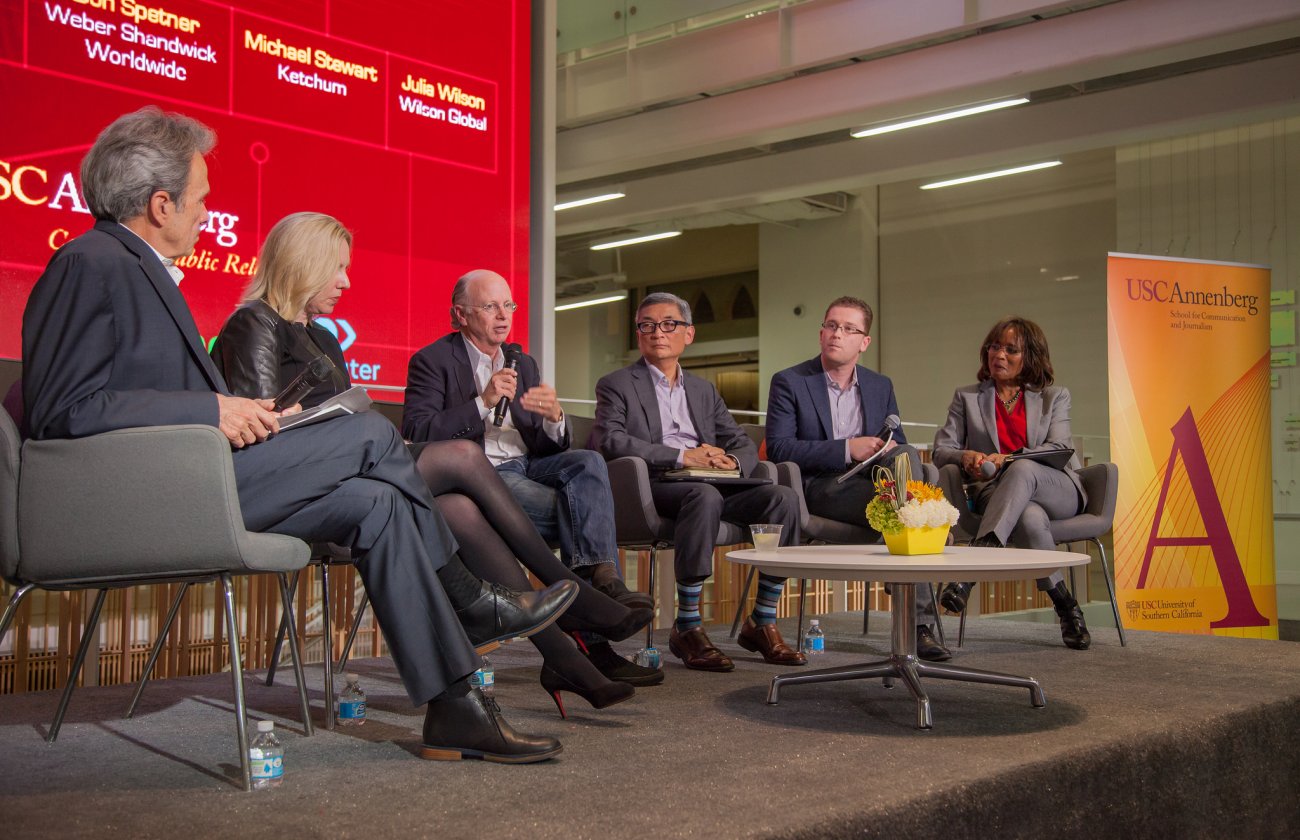By Olivia Niland
Student Writer
USC Annenberg's Institute of Sports, Media and Society hosted a three-day conference about “Sports and the LGBT Experience: An Exploration of Sexual Orientation & Gender Identity in Athletics” from Oct. 22-24.
The conference was hosted and run by the Institute of Sports, Media & Society, under the direction of USC Annenberg Professor Daniel Durbin, in partnership with the USC Student Affairs LGBT Resource Center and the Norman Lear Center.
The Norman Lear Center's Adam Amel Rogers and USC Annenberg Ph.D candidate Evan Brody served as the conference's co-directors. Over the course of three days, six panels were held in the Geoffrey Cowan Forum and the Annenberg Auditorium. Panelists ranged from USC student-athletes to coaches, sports administrators, journalists, scholars and current and former professional athletes, including former MLB center fielder Billy Bean, former NFL defensive tackle Esera Tuaolo and professional softball player and Olympic medalist Lauren Lappin.
“Our goal in creating this conference—as in our other conferences—was to move the discussion of this important subject forward and to engage scholars, journalists and athletes in a unique forum that allowed for open discussion and debate,” said Durbin, USC Annenberg Clinical Professor and Director of the Annenberg Institute of Sports, Media and Society.
With the controversy surrounding Russia’s stance on homosexuality, and the upcoming winter Olympics in Sochi, Russia, “This seemed an especially fortuitous time to have a conference discussing the LGBT experience,” Durbin said.
Durbin developed the Institute of Sports, Media and Society in 2009 with the objective of focusing on sports and their impact on culture through communication media, and approached the Norman Lear Center's Rogers and Doctoral Candidate Brody last year about co-directing the conference.
“Evan Brody is doing his dissertation on the convergence of sports and the LGBT experience, and my background is in LGBT issues,” said Rogers, who previously worked for the Gay & Lesbian Alliance Against Defamation (GLADD). “Co-directing the conference was a fantastic experience for us.”
The second of two panels on Oct. 23, “Sports and the Collegiate LGBT Experience” featured USC junior and swimmer Sean Mulroy, USC Senior Associate Athletic Director Donna Heinel, USC Clinical Sports Psychologist Nohelani Lawrence, Assistant UCLA softball coach Kirk Walker and Pat Griffin, founding Director of Changing the Game, who served as the panel's moderator.
“We figured it would be a missed opportunity, being at a school with an extraordinary sports tradition, to not include the collegiate experience [in this conference],” said Brody at the beginning of the panel. “So we wanted to see what USC is doing to make safe spaces for athletes, as well as the NCAA in general.”
During the 90-minute panel, the discussion ranged from LGBT issues in college, recreational and professional athletics, addressing LGBT issues with teammates, coaches and parents, LGBT athletes in relation with religion and race, and what's next for the LGBT collegiate athletics community.
“It's been an amazing couple of years looking at LGBT and collegiate issues,” said Griffin. “There has been more progress in the past three years than in the previous 20. This panel is happening in the context of big change.”
The panelists also emphasized the importance of allies who advocate for LGBT issues on college campuses. Several praised USC Athletic Director Pat Haden's commitment to addressing LGBT issues in college athletics, and in particular his support of USC's forthcoming You Can Play video.
“With Pat taking over, we acknowledge the existence of gay and lesbian athletes on campus,” said Heinel. “He is just all about support and all about student-athletes' welfare.”
The conference's five other panels included “LGBT Sports Scholarship: A Conversation with Senior Scholars,” “LGBT Sports & Entrepreneurial Journalism,” “Critical Discourses on LGBT Sports,” “The State of LGBT Sports & Popular Media,” and “Professional Sports & the LGBT Experience,” all of which were well-attended.
“I think [Rogers and Brody] did an especially good job putting together a program that examined the subject from the perspectives of academics, journalists and athletes,” said Durbin of the conference's co-directors. “And I think the ‘Sports and the Collegiate LGBT Experience’ panel was especially eye-opening in its discussion of the situation at USC.”
The USC Annenberg Institute of Sports, Media and Society has previously hosted programs on sports violence and injury, the Olympics movement, and sports and gender issues, in addition to Sports and the LGBT experience. A conference on the intersection of sports and race is scheduled to be presented next year.









